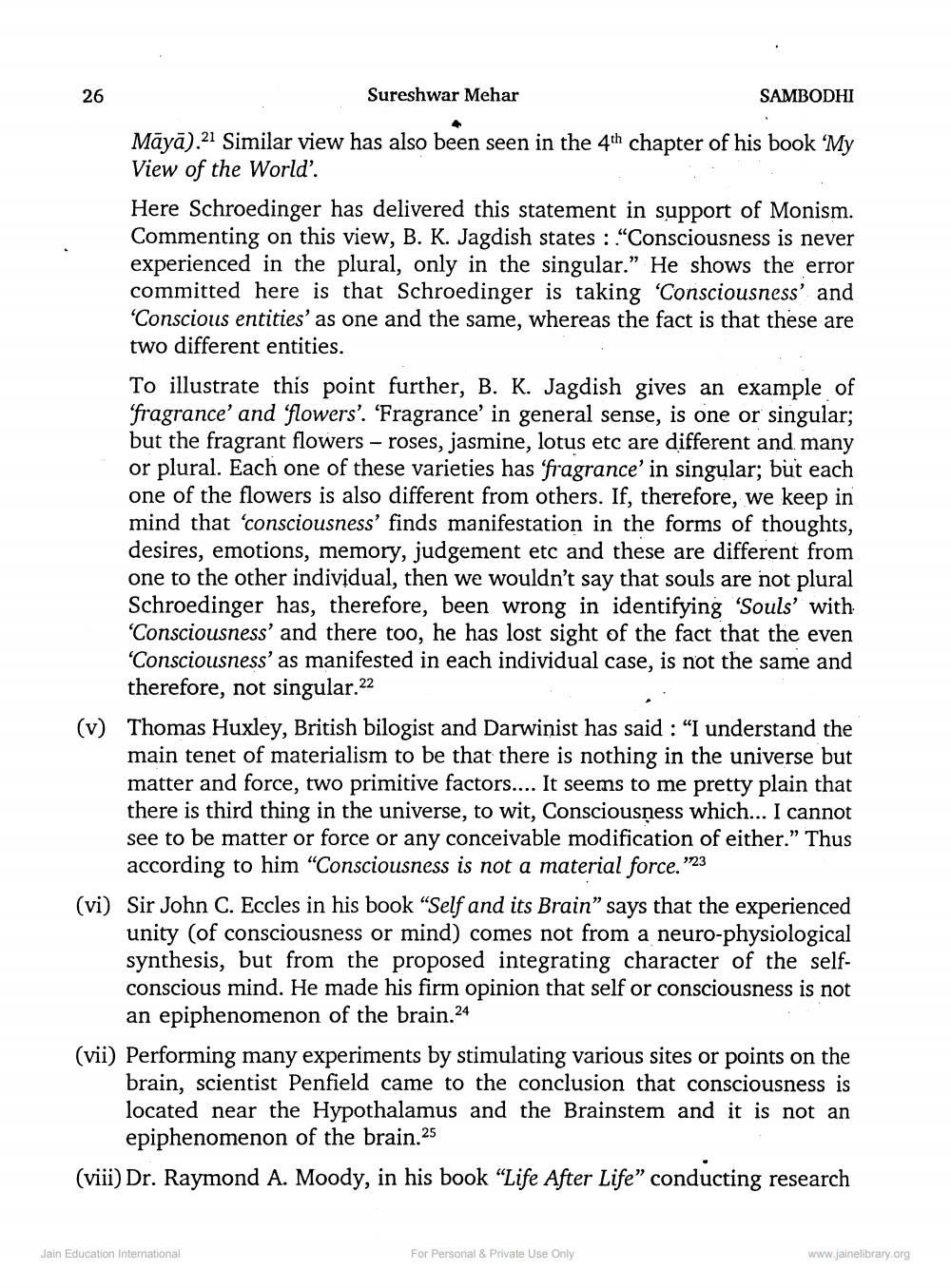________________
26
Sureshwar Mehar
SAMBODHI
Māyā).21 Similar view has also been seen in the 4th chapter of his book ‘My View of the World'. Here Schroedinger has delivered this statement in support of Monism. Commenting on this view, B. K. Jagdish states : "Consciousness is never experienced in the plural, only in the singular.” He shows the error committed here is that Schroedinger is taking 'Consciousness' and 'Conscious entities' as one and the same, whereas the fact is that these are two different entities. To illustrate this point further, B. K. Jagdish gives an example of (fragrance' and 'flowers'. 'Fragrance' in general sense, is one or singular; but the fragrant flowers - roses, jasmine, lotus etc are different and many or plural. Each one of these varieties has 'fragrance' in singular; but each one of the flowers is also different from others. If, therefore, we keep in mind that 'consciousness' finds manifestation in the forms of thoughts, desires, emotions, memory, judgement etc and these are different from one to the other individual, then we wouldn't say that souls are not plural Schroedinger has, therefore, been wrong in identifying 'Souls' with 'Consciousness' and there too, he has lost sight of the fact that the even 'Consciousness' as manifested in each individual case, is not the same and
therefore, not singular.22 (v) Thomas Huxley, British bilogist and Darwinist has said : "I understand the
main tenet of materialism to be that there is nothing in the universe but matter and force, two primitive factors.... It seems to me pretty plain that there is third thing in the universe, to wit, Consciousness which... I cannot see to be matter or force or any conceivable modification of either.” Thus
according to him "Consciousness is not a material force. "23 (vi) Sir John C. Eccles in his book “Self and its Brain” says that the experienced
unity (of consciousness or mind) comes not from a neuro-physiological synthesis, but from the proposed integrating character of the selfconscious mind. He made his firm opinion that self or consciousness is not
an epiphenomenon of the brain.24 (vii) Performing many experiments by stimulating various sites or points on the
brain, scientist Penfield came to the conclusion that consciousness is located near the Hypothalamus and the Brainstem and it is not an
epiphenomenon of the brain.25 (viii) Dr. Raymond A. Moody, in his book “Life After Life" conducting research
Jain Education International
For Personal & Private Use Only
www.jainelibrary.org




